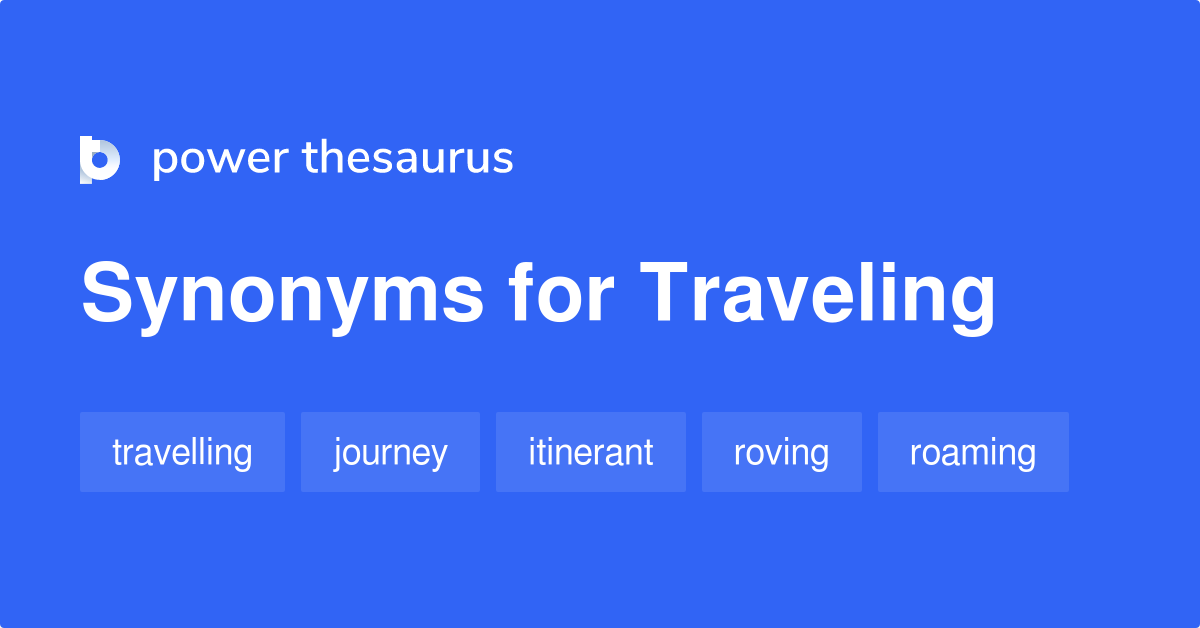Travel Synonym: Exploring Words for the Journey
When it comes to expressing the concept of travel, there is a variety of words and synonyms that can convey the same idea with subtle differences. Whether you’re a writer crafting a compelling narrative or someone looking to enrich your vocabulary, understanding the different ways to describe travel can enhance your communication. This article explores the various synonyms for travel, offering insight into their meanings and appropriate usage.

Why Use Travel Synonyms?
Using synonyms not only helps avoid repetition but also allows you to add nuance to your writing. While the word travel is commonly used, there are many alternatives that can fit specific contexts. For instance, you might prefer using words like “journey” when describing a long, meaningful trip, or “commute” for regular travel between locations.
Synonyms can also evoke different feelings or imagery. Words like explore, roam, and wander can give the sense of a more leisurely, adventurous trip, while words like commute or tour might suggest something more structured or routine. Understanding these nuances can help you select the most appropriate word for your intended meaning.
Common Synonyms for Travel
Here are some of the most commonly used synonyms for travel, along with their meanings and typical uses:
1. Journey
A journey refers to a long trip, often one that involves significant distance or duration. It is commonly used to describe an adventure or meaningful experience.
- Example: “She embarked on a journey across the continent, discovering new cultures and landscapes along the way.”
- Context: Use “journey” when you want to emphasize the experience or significance of the travel.
2. Trip
A trip generally refers to any travel, often used for short or routine travel. It can imply a casual or planned visit to another place.
- Example: “We’re planning a trip to the mountains this summer.”
- Context: This term is versatile and works well for vacations, business trips, or even short excursions.
3. Tour
A tour involves traveling with a purpose, often for sightseeing. It usually refers to a guided or organized journey to explore a particular place.
- Example: “We went on a guided tour of the historic landmarks in Rome.”
- Context: Use “tour” for travel that is typically structured or involves specific sites of interest.
4. Expedition
An expedition is an organized journey, typically for a specific purpose like exploration or research. It implies a more formal and sometimes adventurous undertaking.
- Example: “The scientists embarked on an expedition to the Arctic to study climate change.”
- Context: This word is ideal for travel that involves exploration, research, or discovery.
5. Excursion
An excursion is a short trip or outing, often for leisure or educational purposes. It usually refers to a day trip or a brief visit.
- Example: “The group took an excursion to the nearby botanical gardens.”
- Context: Use “excursion” when referring to a relatively short, enjoyable journey or outing.

6. Trek
A trek is typically used to describe a long, difficult journey, often on foot. It implies effort and endurance, usually in a rugged or challenging environment.
- Example: “The hikers went on a trek through the Himalayas.”
- Context: “Trek” is ideal for travel that involves strenuous physical activity or navigating difficult terrains.
7. Roam
To roam suggests wandering freely, often without a fixed destination. It evokes a sense of exploration and freedom.
- Example: “He loves to roam the streets of new cities, discovering hidden gems.”
- Context: Use “roam” when describing a spontaneous or unplanned form of travel.
8. Voyage
A voyage is typically a long journey, often by sea or space. It evokes the idea of exploration and discovery.
- Example: “The crew set sail on a voyage across the Atlantic.”
- Context: “Voyage” is a great choice for travel that involves a significant distance or unique form of transport.
9. Wander
To wander means to move aimlessly or without a particular destination in mind. It’s similar to “roam” but can also imply a more relaxed, unhurried pace.
- Example: “I spent the afternoon wandering around the town, enjoying its quaint shops.”
- Context: “Wander” is perfect for describing leisurely travel with no strict plan or schedule.
10. Commute
Commuting refers to the regular travel between two places, often between home and work. It typically involves a daily routine, making it different from leisure or vacation travel.
- Example: “She commutes to the office every day by train.”
- Context: Use “commute” for travel that is routine, especially for work or school.
Exploring Travel Synonyms in Different Contexts
Different types of travel require different words. Understanding the best synonym for your context will enhance your writing and communication.
Business Travel
For business-related travel, you might use words like trip, journey, or commute depending on the duration and purpose.
- Example: “His business trip to Tokyo was a success.”
- Context: “Business trip” or “work trip” are common terms, emphasizing the professional nature of the travel.
Leisure Travel
For leisure travel, words like vacation, tour, excursion, and holiday are popular. These convey the idea of traveling for fun and relaxation.
- Example: “They spent their vacation exploring the beaches of Hawaii.”
- Context: Use “vacation” or “holiday” when describing recreational trips.
Long-Distance Travel
When referring to long, significant travel, terms like expedition, voyage, and journey are more appropriate, emphasizing the scale and importance of the trip.
- Example: “The expedition to the Antarctic was a milestone in scientific exploration.”
- Context: For grander, longer journeys, use “expedition” or “voyage.”
Frequently Asked Questions
What are the most common synonyms for travel?
Some of the most common synonyms for travel include trip, journey, tour, expedition, and excursion. Each of these words has a slightly different connotation, so choose the one that best fits the context.
Are there synonyms for “travel” that suggest adventure?
Yes! Words like trek, roam, wander, and explore often suggest a sense of adventure or discovery, making them ideal for describing more spontaneous or exploratory travel.
Can “commute” be used as a synonym for travel?
Yes, commute is a synonym for travel, but it specifically refers to the regular travel between two places, like traveling from home to work. It’s more routine and less about leisure or exploration.
Conclusion
Understanding and using travel synonyms can greatly enhance your communication, whether you’re writing a story, planning a trip, or simply describing your experiences. From the leisurely nature of a “vacation” to the arduous challenge of a “trek,” each word carries its own nuance and can paint a vivid picture of your journey. Keep exploring different synonyms and experiment with them in your writing to convey your travel stories in the most fitting way.

For more tips on expanding your vocabulary, check out these travel synonym resources.
